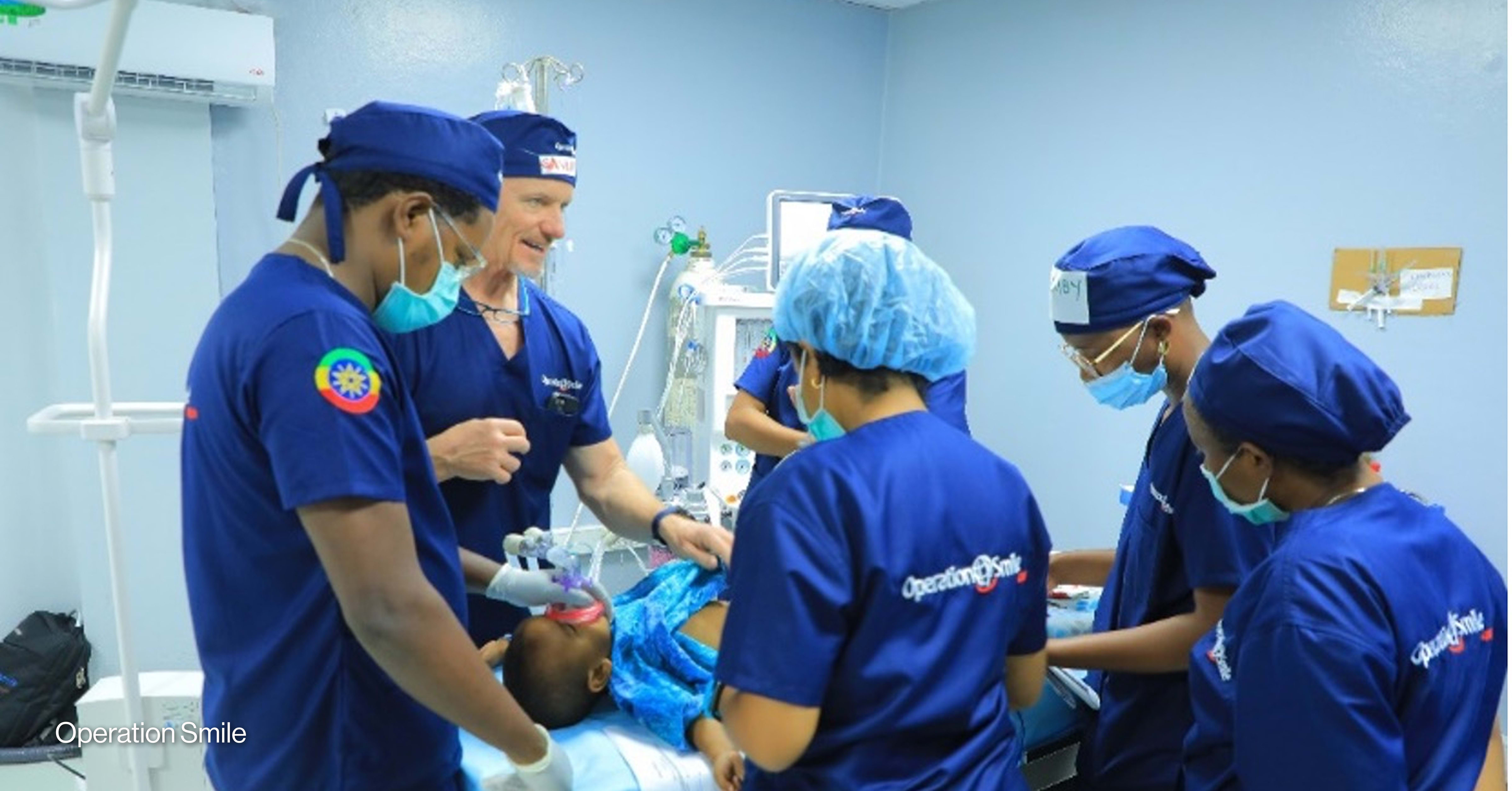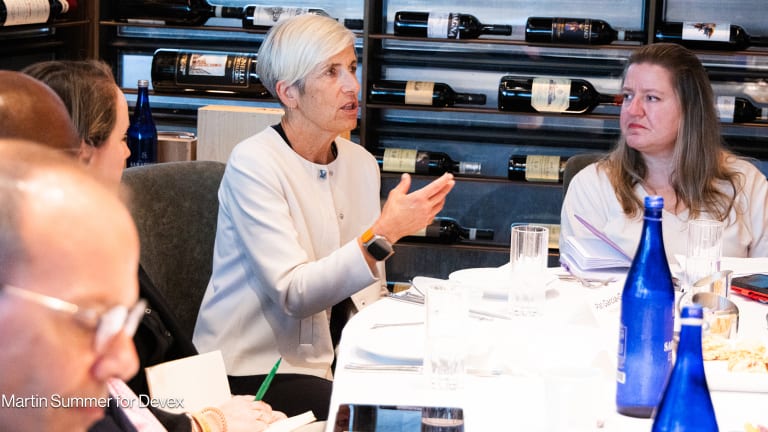
What does it take to make surgery a right, not a privilege, in low-resource settings? That was the question three panelists gathered to discuss on the sidelines of the 80th United Nations General Assembly last week in an event co-hosted by Devex and Operation Smile.
It’s estimated that 30% of the global disease burden is treatable with surgery. Yet five billion people can’t access surgical care because they live too far from a hospital, there is limited health infrastructure, or a deficit in surgeons.
“This is a massive problem, and yet an opportunity if we address it,” said Dr. Ruben Ayala, chief policy and advocacy officer at Operation Smile, which has been working to close the global surgical care gap for over 40 years, starting with cleft and comprehensive care.
Panelists discussed how to achieve surgical equity and simultaneously create lasting health systems. Here are three key takeaways:
Training local experts is essential
“You can have facilities, but if you have no doctors or nurses or staff, then it’s just a space,” said Ayala, explaining why Operation Smile has taken to training surgeons, anesthetists, nurses, and biomedical technicians in 37 countries. Its latest strategy, Operation 100, will equip 100 cleft operative teams across 100 hospitals with the skills, tools, and infrastructure to independently deliver life-changing surgeries, bringing essential cleft care within two hours of home for nearly 500 million people.
The strategy will generate critical learnings, prove what’s possible, and lay the foundation to expand this model further — breaking down barriers to surgical care and advancing health equity so that no one is left behind.
Dr. Francoise Mukagaju, Rwanda’s first female plastic surgeon and a consultant at King Faisal Hospital, is among those supported by the strategy. Rwanda, she shared, used to have only two plastic surgeons for 14 million people, but with Operation Smile’s support, that number has grown to six, with another 17 currently in training. Their skills go beyond cleft surgeries, filling surgical gaps as a whole.
Surgery must be integrated into universal health coverage
Surgical care must be embedded into national UHC frameworks, Ayala emphasized. Past international resolutions have recognized surgery as a core health service, but implementation lags. To remedy that, there is a need for national plans, reliable funding, and governance to convert global commitments into local action, said panelists — with Ayala adding that it should be a locally led approach supported internationally.
An example of that is Ghana’s new national surgical plan, developed with the support of Operation Smile, which estimates that an investment of $500 million over five years could significantly reduce surgical deficits. “Previous governments have, over similar periods, spent in excess of this amount on health care, but it hasn't made that kind of impact. Having this document is like a blueprint, a national plan, which can help us guide investment going forward,” said Dr. Opoku Ware Ampomah, director of the country’s National Reconstructive Plastic Surgery and Burn Centre.
Partnerships are key
Governments, especially those in lower-income contexts, require external support to implement action plans and fill the surgical gaps. However, Ampomah said, “The kind of collaboration we need is one that empowers the local faculty to lead because it’s easy to sit back and think you have a solution program, but Africa is not homogeneous, and … you have to adapt to that.”
Among the lessons Operation Smile has learned through its work in this area, Ayala added, is “that partnerships create friendships and that friendships are built on trust, and if you serve that trust and you honor that trust, you can do enormous things.”
Watch Closing the surgical gap: Local leadership for global change here.








